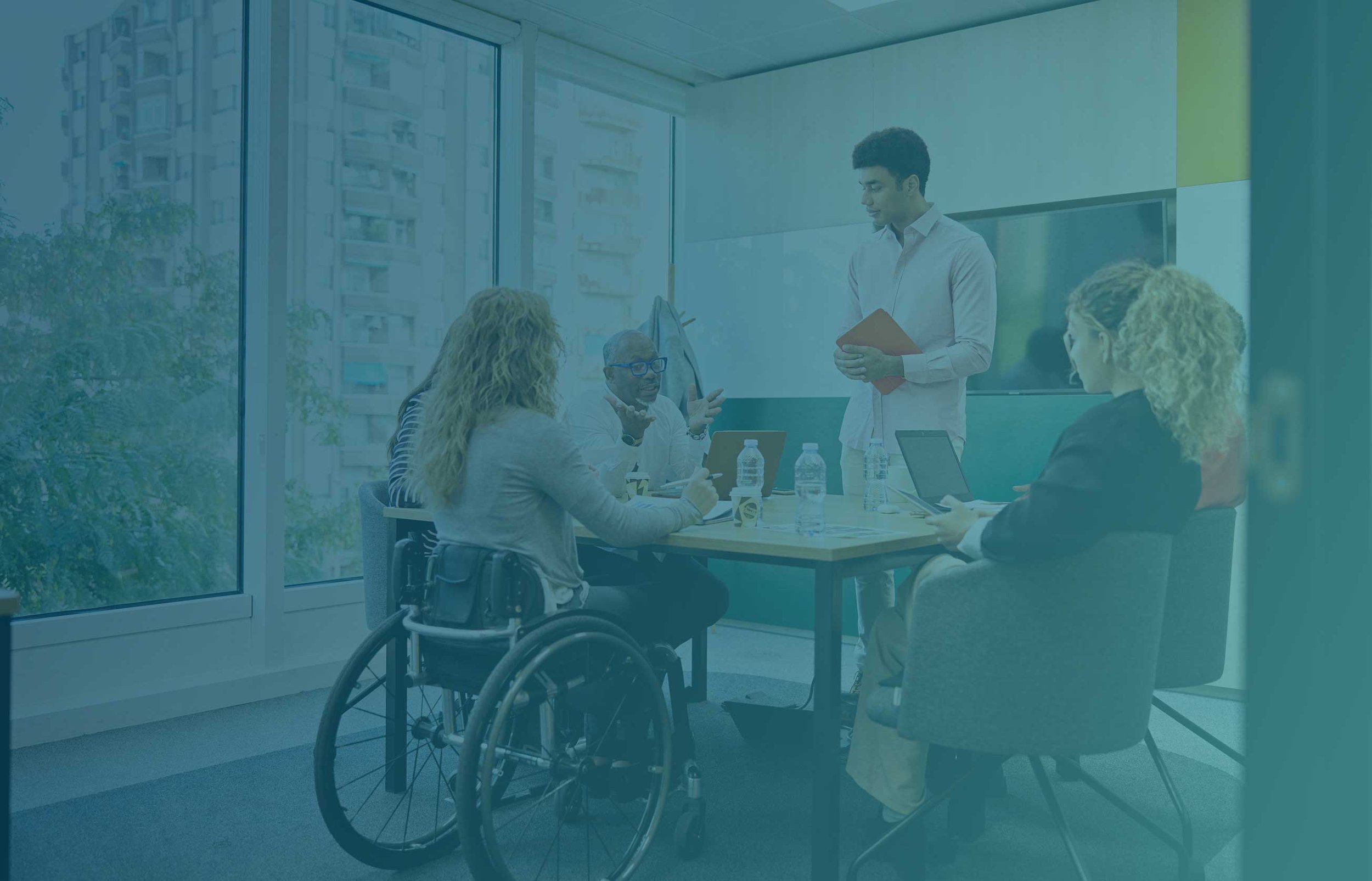
The Elevate Journal
- Leadership
- Nonprofit Support
- Accessibility
- Community Engagement
- Equity
- Data Collection
- Learning
- Internal Culture
- Collective Impact
- Storytelling
- Compassion
- Operations
- Project Spotlight
- Systems Change
- Facilitation
- Impact
- Evaluation
- YPAR
- Fundraising
- Focus Groups
- Data
- Reflection
- Reporting
- Surveys
- Services
- Collaboration
- Strategy
- Resources
- Stakeholders

Approaching Data like an Analyst: From Data to Findings
In our last journal entry, we looked at the most versatile options for data collection. Now let’s take a look at how we think about and practice data analysis at Elevate.

Strategy for Organizations: Relevant, Actionable, and Flexible Planning
This post is the second in our series on strategy for programs, organizations, and communities. In our first post, we explored what it looks like to apply strategic thinking at the program level—clarifying goals, aligning activities, and measuring what matters. Now, we’re zooming out to the organizational level: What is strategy, really? And how do you build a plan that helps your whole organization stay focused, aligned, and adaptive?

Strategy for Programs
At Elevate, we know that strong strategies drive meaningful results. But strategy isn’t one-size-fits-all—it looks different depending on whether you’re shaping a program, guiding an entire organization, or driving impact across a collaborative or community.
In this first installment, we’re focusing on program-level strategy—how to design services and interventions that are responsive, effective, and built to create lasting change.

The Elevate Playbook: Smarter Data + Better Strategy = Meaningful Change
Over the past eight years, we’ve built and refined tools, frameworks, and approaches to support both, working with programs, organizations, and collaboratives to put them into action. We want to share what we’ve learned with you.

Elevate’s Reflections from Recent Conferences
October has been a busy month for Elevate! Many members of our team attended both the TN Nonprofit Conference in Memphis, TN, and the AEA Evaluation Conference in Portland, OR. They made lots of connections, learned and unlearned things, and they’re excited to share their takeaways!

Rediscover Elevate: Get to Know Us and Explore Our New Services!
Let us reintroduce ourselves! Elevate Consulting is a full-service firm dedicated to supporting nonprofits, collaborative community groups, foundations, and municipalities in designing and implementing smart, efficient strategies and programs that improve their community. We are here to help you and your organization live out your mission and drive equitable social change in the world.
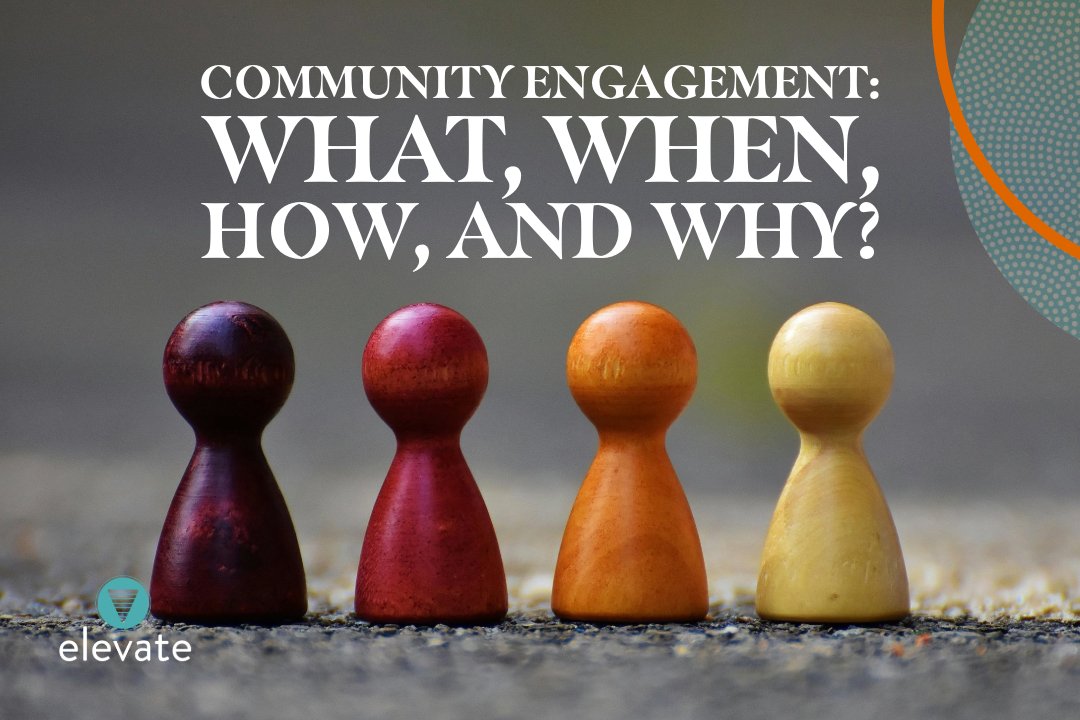
Community Engagement: What, When, How, and Why?
Community engagement, rooted in civic engagement principles and community organizing, has evolved significantly. Its importance has grown across the nonprofit, public, and private sectors, leading to varied experiences, definitions, and interpretations.
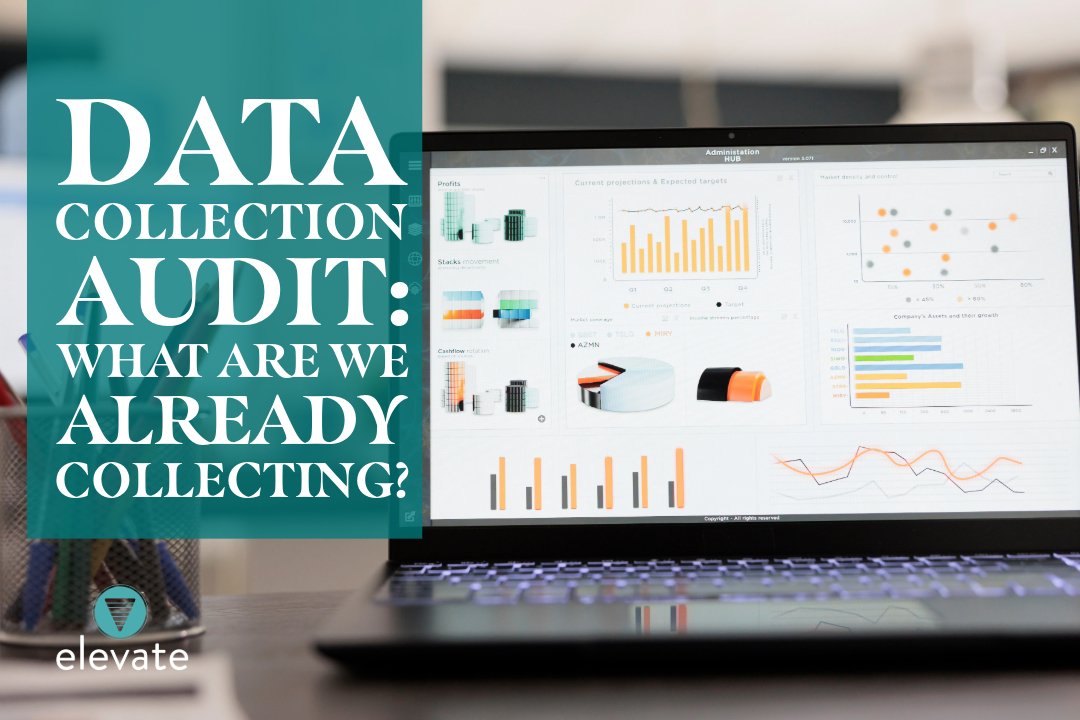
Data collection audit: What are we already collecting?
You might be surprised at what great sources of data you already have! Whether data collection is being implemented formally or informally, odds are you are paying attention to the impact of your work as well as trends in the work more broadly.
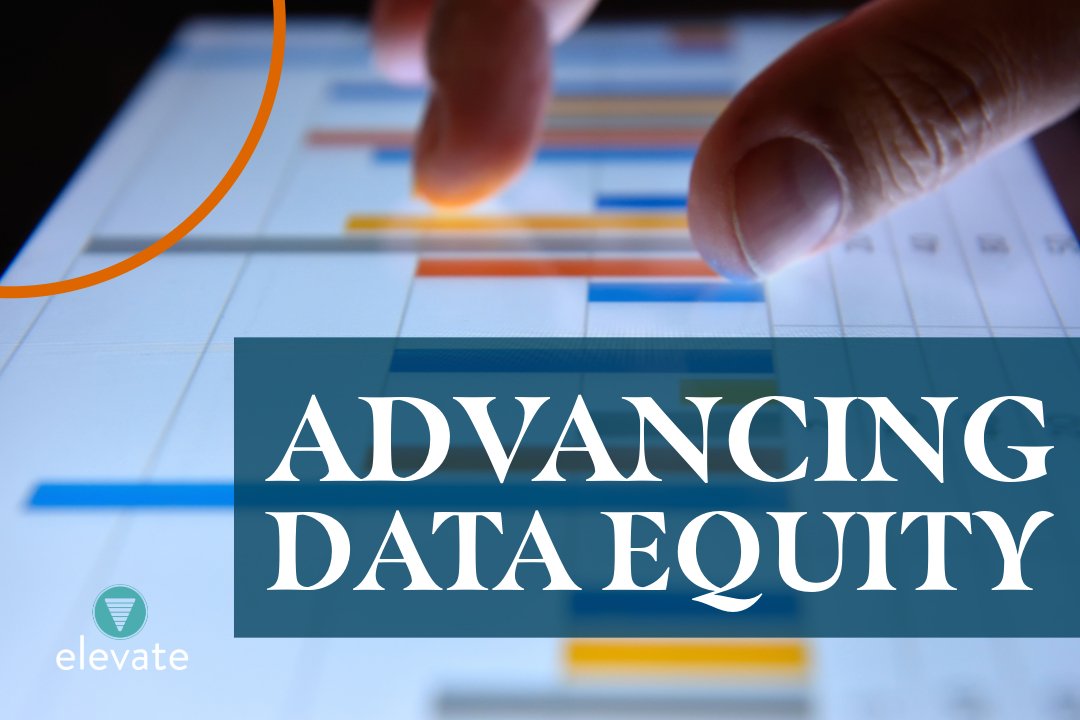
Advancing data equity
A key concept we try to infuse into our evaluation work and encourage our clients to consider is the concept of data equity, which highlights the need for fair and equitable access to and use of data in evaluation processes.
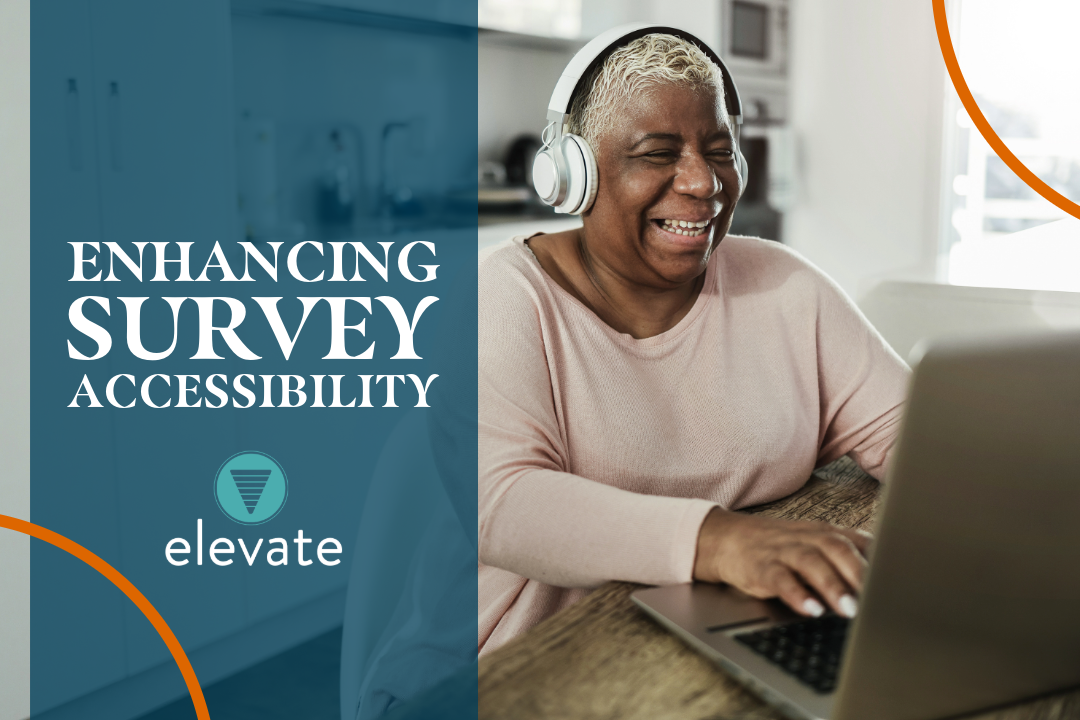
Enhancing Survey Accessibility
Several of West End Home Foundation's funded partners serve older adults who are blind or have limited vision. This challenged us and our partners at WEHF to consider ways to make our online survey more accessible to these individuals. We haven’t arrived at a perfect solution yet, but here are some strategies we’ve learned about that can make online survey data collection more approachable for individuals who are blind.
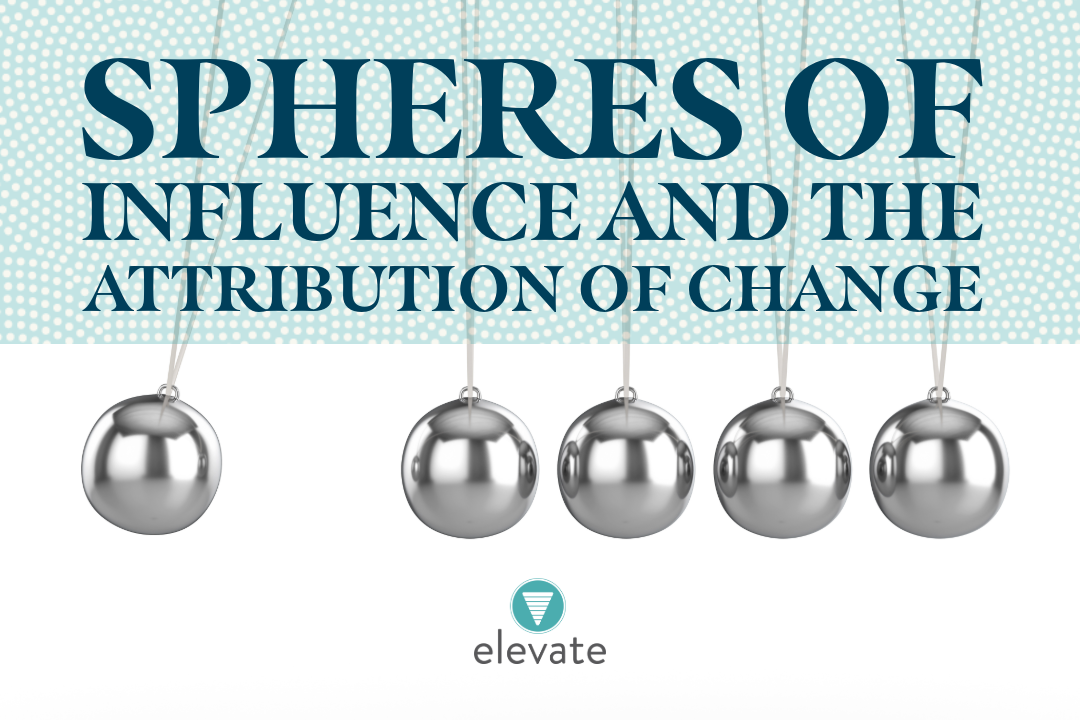
Spheres of Influence and the Attribution of Change
A lot of our initial conversations with clients start with some version of the following: “We really don’t know how to prove that we do x. We know that we see that change day to day, but we don’t have the data to prove that we caused that change.” The key word in this request, of course, is “caused.” Often, organizations feel pressured to demonstrate that their intervention was the sole cause of an observed change. Even when funders or stakeholders aren’t requesting that directly, it’s often assumed that “proving” that your intervention caused an observed change is still the “holy grail” of evaluation.
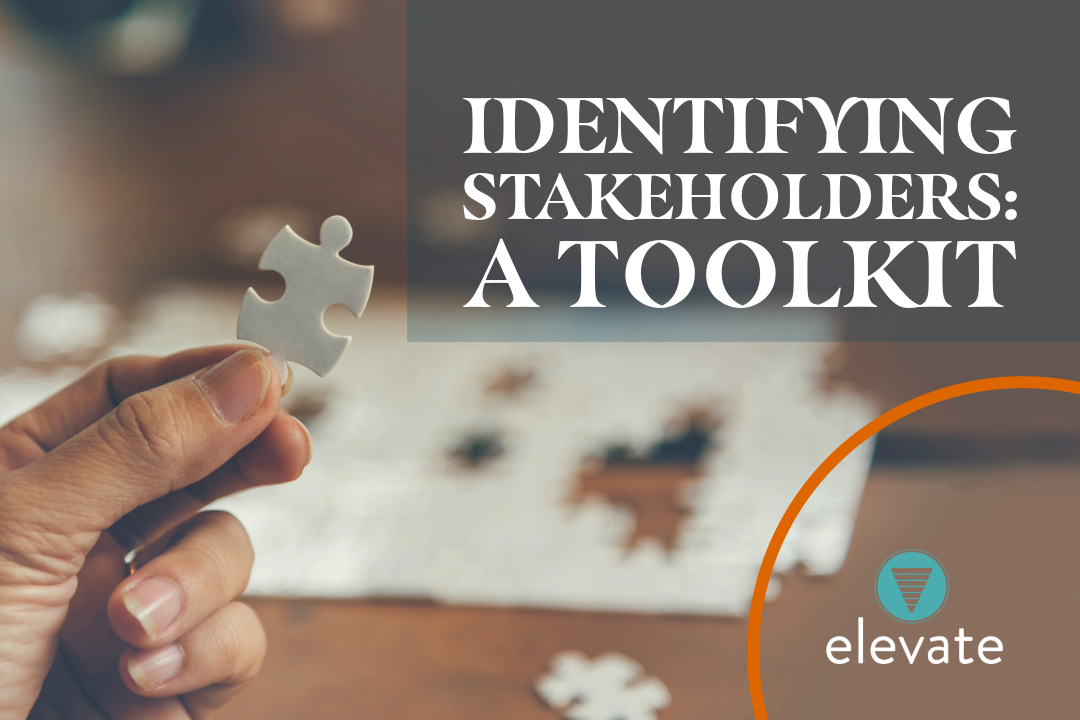
Identifying Stakeholders: A Toolkit
It is likely that the term “stakeholders” is one you’ve heard before. It’s used across sectors to describe someone who has an interest in and/or is affected by a business, an investment, a project, etc. Stakeholders can be individuals, communities, social groups, or organizations. At Elevate, stakeholders are an essential part of our approach to evaluation and to systems change work.
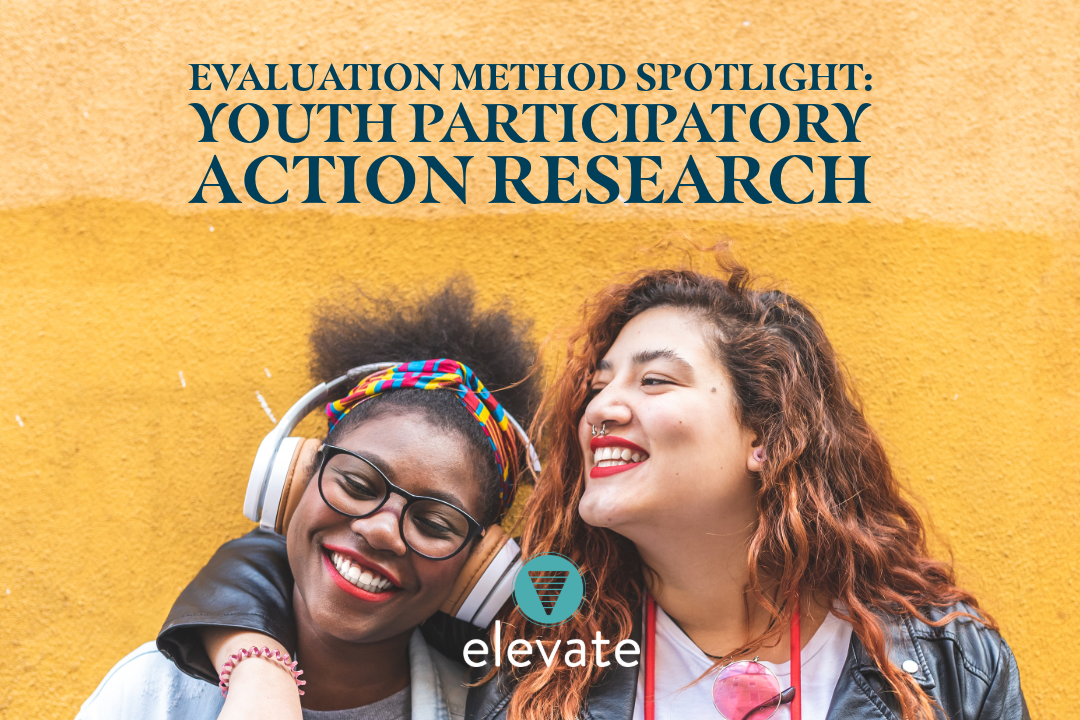
Evaluation Method Spotlight: Youth Participatory Action Research
At Elevate, we strongly believe that evaluation and research must go beyond the numbers to tell the stories of people and communities. As such, we believe in the value of qualitative and community-based, participatory methods and approaches, including participatory action research (PAR). Specifically, we recently had the privilege to support Nashville’s Opportunity Youth Collaborative (OYC) in conducting a youth participatory action research (YPAR) project with its Youth Leadership Team to inform the strategy of the OYC.
